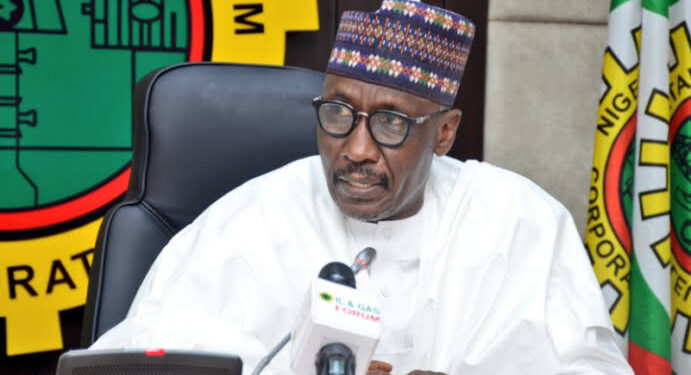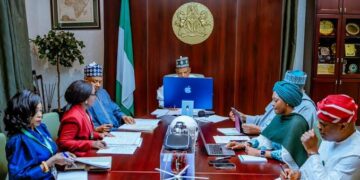The Nigerian National Petroleum Company Limited has demanded the repayment of 4.71 trillion naira from the Federal Government to settle outstanding debts on the importation of petrol, into the country.
The claim was listed as “Exchange rate differential on PMS and other joint venture taxes” on petrol products the company imported between August 2023 and June 2024.
This was announced by the Minister of Finance and Coordinating Minister for Economic Affairs, Wale Edun, at a meeting of the Federation Accounts Allocation Committee in June. Reporters received the minutes of the meeting on Thursday.
Exchange rate differential refers to the revenue that banks and government agencies derive from the difference in value between two currencies at different times through selling and buying prices in foreign currency. For example, if you exchange 1 US dollar for 0.9 euros today and 1 dollar for 0.8 euros tomorrow, the exchange rate differential is the change between these two rates.
The move also means that the government will assist with fuel imports by compensating for the difference between the projected rate and the actual cost incurred by NNPC to import petroleum products into the country.
This cost difference, which is normally reflected in the retail price of the product and should be borne by the end consumer, contradicts the government’s claim that subsidies have been removed.
The revelation also came amid challenges faced by oil companies in terms of supplying adequate PMS to marketers for national distribution.
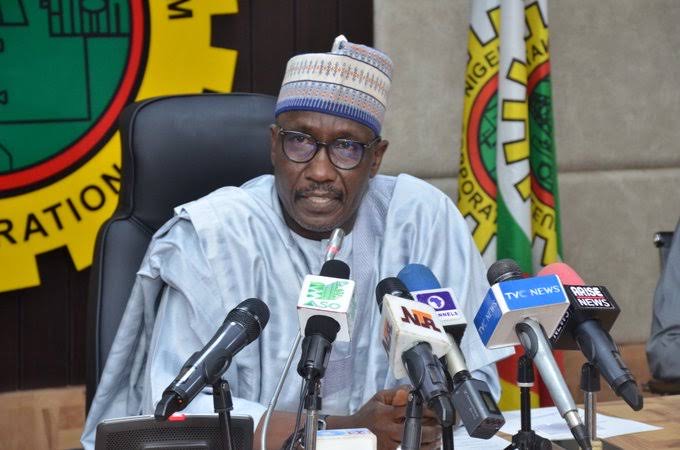
The minister explained to state financial commissioners at the meeting that the national oil companies had received the presidential approval to carry out this task using a “Weighted Average Rate” from October 2023 to March 2024. Edun added that the company also requested an extension to make up interest rate differentials but was advised to write to the National Economic Council for approval.
The minutes of the meeting read, “NNPC Limited Exchange Rate Differentials on PMS Importation and Other Joint Venture Taxes for the period August 2023 to April 2024.
“The chairman, PMSC (Post Mortem Sub-Committee) reported that NNPC Limited informed the sub-committee that it had an outstanding claim of N2,689,898,039,105.53 against the federation as a result of the use of ‘Weighted Average Rate’ as of May 2024.
“Furthermore, he disclosed that the sub-committee was able to establish that there was Presidential approval to use the ‘Weighted Average Rate’ from October 2023 to March 2024.”
It was compiled that the government, through the National Economic Council, had given the NNPC permission to import fuel at an exchange rate of 650 naira to the US dollar at coastal retail price from June 2023, but due to the devaluation of the naira, the price remained at an increase of 1,200 naira, which is equivalent to an exchange rate difference of 550 naira.
On May 29, 2023, President Bola Tinubu publicly declared at his inauguration that “subsidies are gone,” signaling the end of the barriers that had limited the country’s economic growth. However, this claim has been disputed by the International Monetary Fund, the World Bank, and other stakeholders, who claim that the government has quietly reinstated the fuel subsidy.
A document on the proposed economic stabilization plan in June stated that the government plans to spend about N5.4 trillion on fuel subsidy.
Oil traders also said that as the delivered price of PMS is N1,117 per litre, the monthly subsidy on the product has increased to about N707 billion.
In his comments, Akwa Ibom State Finance Commissioner, Linus Nkan, asked how the N2.6 trillion exchange rate difference with the state came about and sought further clarification.
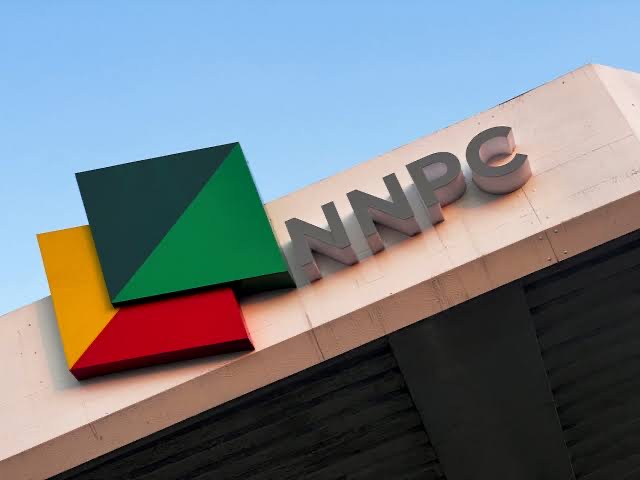
The minutes read, “The Commissioner of Finance, Akwa Ibom State, referred to paragraphs 3.01 and 5.01 of the PMSC report and requested clarifications as to how the N2.6tn exchange rate differentials against the Federation came about,” In response, General Manager, FAAC Office, NNPCL, Mr Joshua Danjuma, confirmed that the amount claimed by the company was to cover the landing cost of PMS.
He added that the cost would also increase significantly until May 2024 due to fluctuations in the exchange rate.
He said, “This is in response to the request of NNPC Ltd. A representative of NNPC Limited confirmed that the amount of N2.6 trillion was paid to the federation but that the figure increased significantly from May 2024 due to changes in interest rates at which the company procured foreign currency to pay for the landing cost of PMS.
In a month-to-month breakdown, the debt increased to N1.24 trillion in August 2023, N1.3 trillion in September 2023, and N1.51 trillion in October 2023, leaving the outstanding balance at N1.18 trillion. By November, these claims had increased by 570 billion naira to 2.08 trillion naira, and by December 2023, it had increased by another 550 billion naira to 2.63 trillion naira.
The document further showed that this figure had increased to 3.19 trillion naira in January 2024, 3.29 trillion naira in February, 3.2 trillion naira in October 2023, 3.55 trillion naira in March, 4.2 trillion naira in April, 4.29 trillion naira in May, and 4.71 trillion naira as of June 2024.
Also, the Chairman, Revenue Mobilization Allocation and Finance Committee, Mohammed Bello, in a presentation during the meeting, explained the reason for the price difference, “Necessary price adjustments will be made using the exchange rate benchmark of 650 Naira per US Dollar to arrive at coastal retail prices from June 2023 onwards.”
“Furthermore, NNPCL has requested and received approval from His Excellency the President to freeze the estimated invoice price for offshore remittances at 524.99 naira from August 2023 to March 31, 2024. It has also utilized exchange rate adjustments to increase the supply of petroleum products to maintain and ensure national energy security.
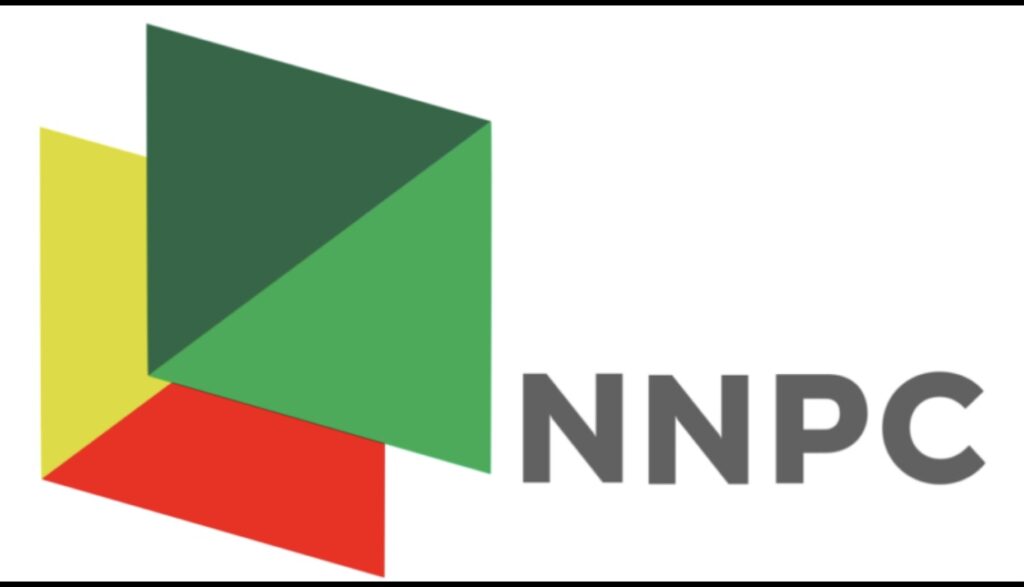
“NNPCL also reported that the company has received further approval to extend the use of the weighted average rate from April to June 2024, although the Subcommittee has not yet seen the document. As of June 2024, NNPCL has reported the outstanding amount on exchange rate differentials to the Federal Government.
“The Subcommittee also noted that in NNPCL’s June 2024 report to the FAAC, the weighted average exchange rate for the month was 1,200 naira, which is an estimated rate compared to the 650 naira called for in the NEC statement. “The analysis also revealed that no quantities, prices, or sales figures were provided to justify the exchange rate differences found.
“The NNPCL responded that it could provide further information to the subcommittee to clarify the issues raised but only on request. The Chairman who chaired the meeting agreed to a letter to the NNPCL requesting relevant information to resolve the issue.”
Meanwhile, the Niger State Finance Commissioner, Lawal Maikano, lamented the inability of revenue-generating agencies to meet their revenue targets, stressing that they have only been able to achieve 50 percent of their budgeted revenue for the current fiscal year.
“The HCF, Niger State referred to the Communique and observed that only about 50 percent of the budgeted revenue for the current year was being achieved by the RGAs and described it as a poor budget performance.”
He therefore stressed the need to adjust the FAAC revenue budget projections to what the RGA can realistically achieve.
He also called on the agency to put more effort into revenue generation. Similarly, Kaduna State HCF, Mr. Shizzer Bada, expressed concern over the accumulation of unpaid RGA revenues to the federation account amounting to trillions of naira between 2023 and 2024. He therefore advised that steps to cut off coordination with the agency should be accelerated.
On the forensic audit of the 2.7 trillion naira subsidy claims, the Secretary of the Ministry of Interior, Ali Mohammed, reported that the Auditor General of the Federation is working on a forensic audit of NNPC Limited as required and a report will be submitted to the FAAC upon completion of the contract.
In response, Professor Umi Iredare said he could not understand why the NNPC would ask the government to pay the difference when it sold oil in foreign currency on behalf of the government.
According to energy experts, the NNPC should also pay royalties to the country like other oil companies.
“What is the basis for the NNPC asking the government to give them money back? Is the NNPC claiming it overpaid them? If the NNPC is really going to follow its new status, what they need to pay to the government is royalty, Nigerian hydrocarbon tax, and corporate income tax. They need to pay the way international companies pay the government. If the agreement is in dollars, then the NNPC needs to pay the government in dollars. What the government does with the dollars is the responsibility of the government.
“If you look at the taxes paid by the international oil companies, they are tax oil which NNPC sells on behalf of the government and gives the government the dollar. So, it is very difficult for me to understand why the Federal Government has to return any money to NNPC unless NNPC is saying that it is the one funding the government in dollar equivalent, and since the government is changing the exchange rate to the tune of N1,500, the government cannot keep the windfall profit because the government now has more than when the exchange rate was N700,” Iledare explained.
The scholar added, “It is very difficult for me to comprehend the rationale because the government is the owner of the equity, the government owns the tax oil, and the government is the owner of the royalty oil that the NNPC is selling on its behalf.”
“If the argument is about what they call under-recovery, that means NNPC spent dollars on behalf of the government to import fuel and the government is giving them the under-recovery in naira, which I’m not sure of. It is very complicated to understand.
“That is why the Petroleum Industry Act, wanted to sever a relationship where the Federal Government is dependent on the NNPC. By the way, the Federal Government is not necessarily the owner of NNPC. It is the federation that is the owner of the NNPC,” he added.


